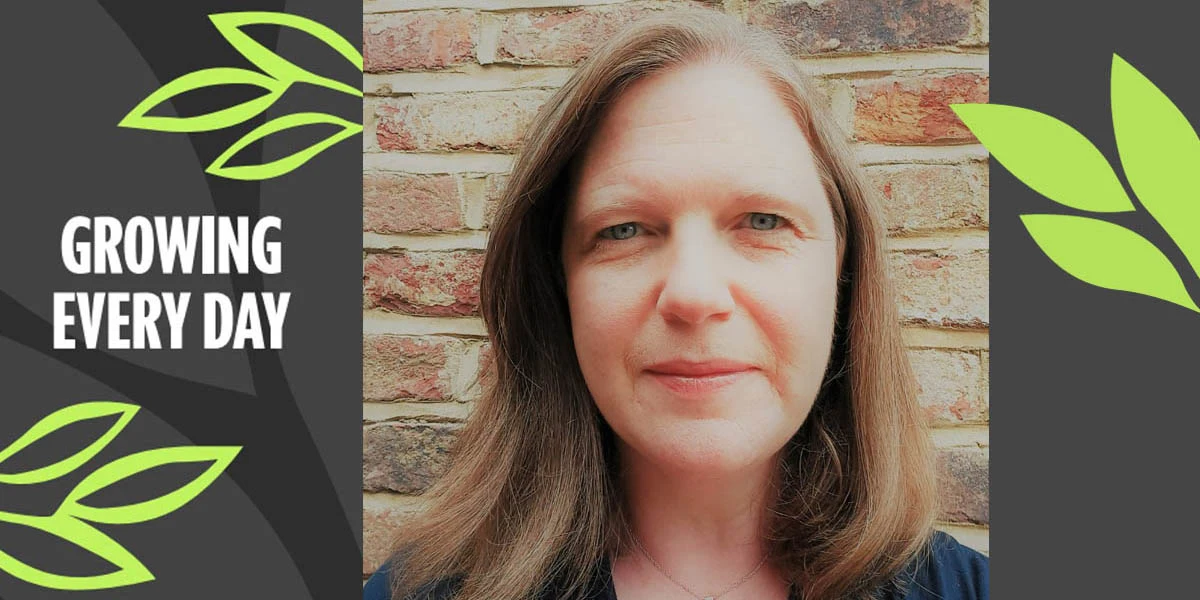Women’s empowerment is a reality at Elsevier — here’s my experience
6 March 2023
By Erin Hill-Parks, PhD

With my company’s support, I’ve joined a community of leaders at Elsevier.
In my 11 years at Elsevier, I have experienced directly how we learn to value women’s experiences and leadership and how Elsevier has embraced gender equity.
When I returned to work after maternity leave in 2019, I found that a women’s network had started in my office. The first event was a celebration featuring our new CEO — the first woman CEO in the company’s 140-year history. Listening to her, my colleagues, and other panelists speak about the importance of emotional intelligence in leadership, authenticity and the power that comes from diversity and inclusion, I knew I was in a place where I could grow while also being true to my core beliefs.
Elsevier has prioritized gender equity, dedicating resources and thought into ensuring Elsevier leads the way in inclusivity in publishing, academia and technology. As Elsevier CEO Kumsal Bayazit said when introducing Elsevier’s independent Inclusion & Diversity Advisory Board in 2020:
"There has been important progress over the past decade, but challenges persist. We have more work to do to address issues of diversity and inclusion in research. There is no single solution here; the entire research ecosystem must come together to drive lasting change. To this end, we will accelerate our work with all stakeholders, including funding bodies, governments and institutions worldwide that share our goal of advancing science and improving health outcomes through greater diversity in research."

KB
Kumsal Bayazit
Chief Executive Officer at Elsevier
This commitment is far more than talk — it’s a reality that affects our products and our people in surprising ways.
Our products are continually being updated to become more diverse and inclusive. For example, last year, Complete Anatomy launched the most advanced 3D female anatomy model for health education. And this year, they released a model with diverse skin colors and facial features to tackle racial bias in healthcare.
Developing a talent I wasn’t sure I had
Elsevier’s Developing Talent for Gender Equity leadership program identifies rising leaders and provide the tools and skills they may not yet have to help them on the journey of leadership. When the first cohort was open for application rather than recommendation in 2020, I wasn’t sure if I should apply.
I then reflected on what it means to be a leader, looking at the women around me and the different ways we can all lead. Encouraged by my mentor, I successfully applied to the program and found the confidence to lead in multiple areas.
I began a secondment in Research Analytics after nine years working in book acquisition. I began to explore how I could lead in a matrix career, moving across functions and departments in the company to grow my skills and experience. I stepped up to be the co-lead of the London chapter of Thrive, the gender equity network that had inspired me previously. And now I am privileged to co-lead the global network since 2021, organizing events and representing the voice of gender equity within and outside of Elsevier. With a network of 17 local chapters around the world, Thrive creates a platform to educate and discuss topics related to gender inclusion; provide global and local networking, mentoring and development opportunities; and promote a deepening sense of community and belonging at Elsevier and in the wider technology and publishing communities.
Nurturing, celebrating, and promoting a community of women leaders makes Elsevier a more dynamic, inclusive and creative place to work. When we promote each other we promote all, and we succeed together.
Contributor

EHP